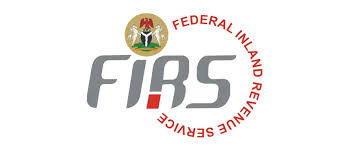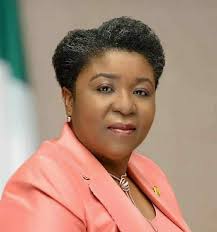News
RMAFC Report: Buhari Receives New Revenue Formula, Defers Decision
President Muhammadu Buhari has said he would await the final outcome of the constitutional review process before presenting the report of the review of the vertical revenue allocation formula to the National Assembly as a Bill for enactment.
The president stated this, yesterday, in Abuja while receiving the report by the Revenue Mobilization Allocation and Fiscal Commission (RMAFC), led by Engr. Elias Mbam.
‘‘Ordinarily, I would have gone ahead to table this report before the National Assembly as a bill for enactment.
‘‘However, since the review of the vertical revenue allocation formula is a function of the roles and responsibilities of the different tiers of government, I will await the final outcome of the constitutional review process, especially as some of the proposed amendments would have a bearing on the recommendations contained herein,’’ he said.
Buhari listed some of the recommendations in the report as follows:”Establishing local government as a tier of government and the associated abrogation of the state/local government account; moving airports; fingerprints, identification and criminal records from the Exclusive Legislative List to the Concurrent Legislative List, empowering the RMAFC to enforce compliance with remittance of accruals into and disbursement of revenue from the Federation Account as well as streamlining the procedure for reviewing the revenue allocation formula.”
The president assured members of the commission that the Federal Government would immediately subject the report to its internal review, and approval processes, while awaiting finalisation of the efforts by the National Assembly.
According to the president, this strategy, rather than issuing an Executive Modification order, as was done in 1992, is more in line with entrenching our democratic tenets.
He commended the RMAFC for a job painstakingly done, pledging his unwavering commitment and support to them in carrying out their constitutional mandates.
The president also thanked Nigerians, especially the state and local governments, for making their inputs through the broad stakeholders’ engagement processes that produced the report.
He said, “I am aware that the present revenue allocation formula has not been reviewed since the last exercise carried out in 1992.
“Considering the changing dynamics of our political-economy, such as privatisation, deregulation, funding arrangement of primary education, Primary Health Care and the growing clamour for decentralisation, among others; it is necessary that we take another look at our revenue sharing formula, especially the vertical aspects that relate to the tiers of government.
“This becomes more compelling as we need to reduce our infrastructural deficit, make more resources available for tackling insecurity, confront climate change and its associated global warming and make life more meaningful for our rapid growing population.”
Buhari said as an advocate for grassroots development, he has always remained committed to ensuring that all tiers of government are treated fairly, equally and justly in the sharing of national resources.
“I want to let you all know that I have keenly followed most of the discussions held in the geo-political consultative process and one thing that struck me clearly was the agreement that a review of our vertical revenue formula cannot and should not be an emotional or sentimental discussion and it cannot be done arbitrarily.
“All over the world, revenue and resource allocation have always been a function of the level of responsibilities attached to the different components or tiers of government.
“I am, therefore, happy to note that the discussions were held along these lines and rested squarely on roles and responsibilities as spelt out in the 1999 Constitution (as amended).
“However, I also note that in reaching the final decisions at most of these engagements, not much emphasis was placed on the fact that the Second Schedule of the Nigerian Constitution contains 68 items on the Exclusive Legislative List and the remaining 30 items on the Concurrent List requiring both the federal and state government to address.”
Buhari, therefore, declared that for the nation to have a lasting review of the present revenue allocation formula, there must first be an agreement on the responsibilities to be carried out by all the tiers of government.
In particular, he noted that the proposal seeks a 3.33percent reduction in the current Federal Government allocation and on the other hand an increase of 3.07percent and 0.44percent for the states and local governments on the other hand.
He added that with regards to the special funds, the report by the RMAFC proposed an increase of 0.2percent for the Federal Capital Territory (FCT) and a decrease of 0.38percent for Development of Natural Resources.
The president recounted that the Federal Government also made its input into the process of reviewing the vertical revenue allocation formula based on existing constitutional provisions for roles and responsibilities for the different tiers of government.
“We must note the increasing visibility in sub-national level responsibilities due to weaknesses at that level, for example: Primary Health Care; Basic Primary Education; levels of insecurity, and; increased remittances to state and local governments through the Value Added Tax (VAT) sharing formula, where the Federal Government has only 15percent and the states and local government share 50percent and 35percent, respectively,” he said.
News
Learn How To Form Coalition Party From Tinubu, Sowunmi Tells Atiku

Spokesman to former Vice President Atiku Abubakar, and chieftain of the People’s Democratic Party (PDP), Mr Segun Sowunmi, has advised his principal, Atiku, to learn from President Bola Tinubu on how to form a coalition.
The Tide reports that in a bid to wrest power from President Tinubu in 2027, Atiku has been leading the movement by opposition politicians to form a coalition of political parties ahead of the next general election.
Last month, opposition politicians set up a team comprising former Minister of Transpiration, Rotimi Amaechi, and former Governor of Cross River State, Liyel Imoke, to decide whether to float a new party or fuse into an existing platform.
While the main opposition party, PDP, struggles with a perennial leadership crisis, the former Vice President is bent on establishing another political force to take power from the ruling party in 2027.
But Sowunmi, who has been Atiku’s ally for many years, disagrees with his move, saying instead of forming a coalition with another political platform, he should coalesce opposition politicians into the PDP.
Speaking during an interview on TVC on Tuesday, Sowunmi, who was Atiku’s campaign spokesperson in the last election, asked his principal to learn from President Tinubu on how to form a coalition.
Sowunmi believes Atiku, having benefitted from the PDP as a former Vice President and getting the party’s presidential ticket twice, should not seek to form a coalition that will not have the PDP as its base.
He said, “I’ve always said to people, people love with their hearts. I love atiku with my bones. But I can’t help him against himself. You can’t run vice presidency on PDP two times with Obasanjo, get presidential candidate on that same party two times. I don’t agree with him that the next best thing is to be shopping for…(a platform) If you want a coalition, why are you not coalescing them into your party?” he asked.
The former PDP governorship candidate in Ogun State advised the ex-VP to learn from Tinubu on how to build a coalition without dumping his political party.
“Look at your rival, your friend. You guys started together. At best, even if you want to say he’s building a coalition is he not coalescing opponents into his place”? Sowunmi asked again.
The PDP chieftain, who recently showered praises on Tinubu after he visited him, said the President has an “uncanny ability to make everybody individually feel special” regardless of political affiliations.
His words: “That guy (Tinubu) is something oh, he has this uncanny ability to make everybody individually feel special. It doesn’t matter whether you are a former foe or a president’s friend, every moment you share with him, I don’t know how he does it, though you’re going to leave the place feeling that you matter, feeling that he gets it, feeling that what you guys are talking about is important. And there’s something about him, when he gives you his word, he will say something like ‘ko le ye’, meaning that to the best of human ability, it will stand.”
Meanwhile, there have been conversations about Sowunmi’s political stance as many questioned his relationship with Atiku, with whom he shares a longstanding political relationship.
Asked about his relationship with Atiku following his meeting with Tinubu, Sowunmi said he doesn’t know if the former Vice President is upset.
“I don’t know whether Atiku is upset or not upset, but I know a lot of our followers are talking a lot of nonsense, and I’m wondering how I became attached to Atiku when I’ve been in PDP since 1999 never leaving,” he responded.
News
FIRS Introduces New SOP To End Tax Confusion Nationwide

The Federal Inland Revenue Service (FIRS) has introduced a new Standard Operating Procedure (SOP) to fix inconsistencies in tax services across its over 300 offices nationwide.
The move aims to make tax processes clearer, more transparent, and easier for Nigerians.
In a statement, Special Adviser on Communications and Advocacy to the FIRS Executive Chairman, Mr. Collins Omokaro, said the updated SOP is a key part of the agency’s plan to improve taxpayer experience.
He explained that, in the past, different FIRS offices used different methods, which often confused taxpayers.
“This is about people, experience, and impact. It’s a step towards a tax system that supports voluntary compliance and national development,” Omokaro said.
The new SOP provides a single guide for key processes like registration, payment, audit, and enforcement. This will ensure all FIRS offices follow the same steps, making the system fairer and more predictable.
FIRS Executive Chairman, Dr. Zacch Adedeji, described the SOP as more than just a set of rules.
“This SOP is not just a technical document; it is a declaration of who we are becoming as a service. It reflects our commitment to transparency and service to the Nigerian people,” he said.
The SOP also supports FIRS’s digital transformation, combining human and technological systems to deliver faster and more reliable services. It will also improve internal efficiency by providing clear guidance and better training for staff.
“With this rollout, every FIRS staff member has a clear mandate: study it, apply it, and embody it. That’s how we’ll earn the trust of Nigerians,” Omokaro added.
The reform is part of FIRS’s efforts to become a more service-driven organisation, focused on clarity, consistency, and national growth. The agency hopes the new SOP will make tax services better for Nigerians and increase public trust in the system.
News
FG Working Towards World-Class Public Service -Walson-Jack

The Head of the Civil Service of the Federation (HCSF), Mrs Didi Walson-Jack, says the Federal Government is committed to building a world-class public service in Nigeria.
Walson-Jack made this known in Abuja, on Wednesday, at a World Press Conference ahead of the International Civil Service Conference and the African Public Service Week scheduled for June 25 to 26 in Abuja.
She said a recent study tour to Singapore was part of preparatory activities aimed at positioning Nigeria’s civil service for excellence and attracting global participation in the upcoming events.
“The study tour to Singapore was the first major activity we undertook under the collaboration between the Office of the Head of Civil Service of the Federation and the Heads of Service of the 36 states and the FCT,” she said.
According to her, the visit, supported by the United Nations Development Programme (UNDP), involved 20 State Heads of Service and was designed to benchmark best global practices and enhance Nigeria’s public service delivery.
“The idea was born out of our ongoing collaboration, where we share ideas and knowledge across federal and state levels.
“Singapore was chosen because it is globally recognised for excellence in public service,” she explained.
Walson-Jack noted that the second phase of the tour will involve the remaining 17 heads of service later this year.
She said the tour provided participants with the opportunity to engage with both public and private sector institutions in Singapore, compare administrative practices, and gain insights into global standards.
“It was an eye-opener and a capacity-building opportunity.
“Since our return, several state civil services have begun implementing reforms in collaboration with the federal service, particularly in areas such as capability development and digital transformation,” she added.
Walson-Jack further disclosed that Nigeria would host a reciprocal study tour during the upcoming African Public Service Week, where foreign delegates will engage with various federal institutions.
“They will see firsthand our digitalisation efforts, performance management systems, and other reform initiatives aimed at transforming our civil service.
“We hope the experience will inspire similar actions in their home countries,” she said.
-
Niger Delta3 days ago
Aide Lauds Oborevwori On Infrastructure, Educational Dev
-
Nation3 days ago
Unknown Assailants Kill 56-Year-Old Drug Dealer In Ondo
-
Politics3 days ago
2027: Defectors Are Sinners Seeking Forgiveness – Dalung
-

 News2 days ago
News2 days agoArmy Trains 604 Special Forces To Boost National Security
-
Features3 days ago
NDDC @25: A New Economy Emerges With Solar Light Project
-

 Sports2 days ago
Sports2 days agoUnity Cup Games Performance Excites NFF President
-
Business3 days ago
Train 7 Project: NCDMB, NLNG Launches On-The-Job Component
-
Nation3 days ago
Business Mogul Partners Students To Reach The Unreached

